Are French Bulldogs good at agility?
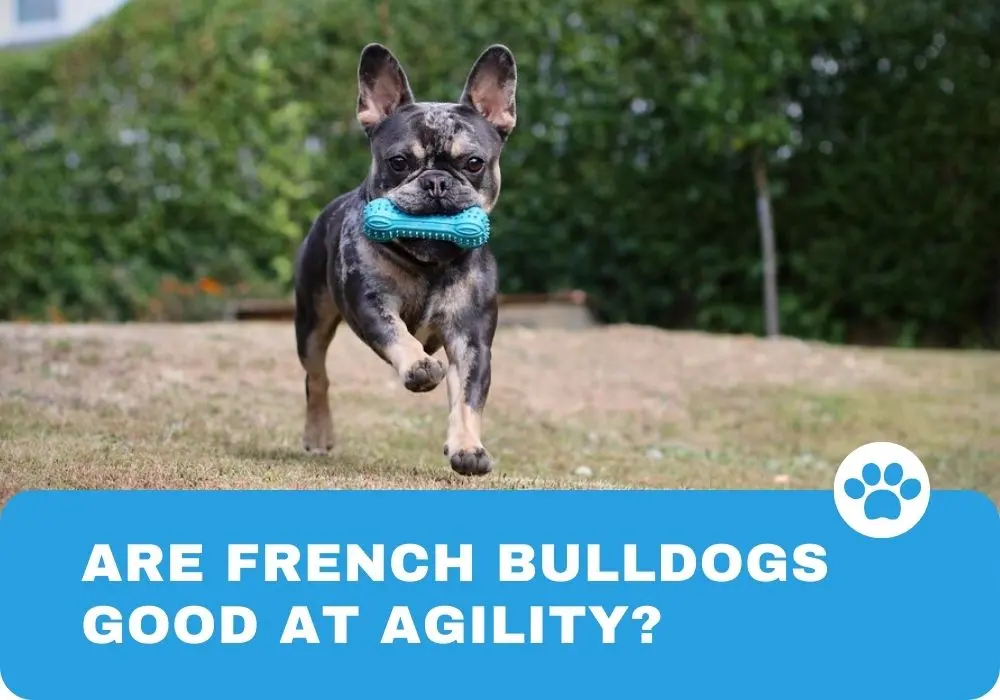
Welcome to the exciting world of canine athleticism! In the realm of agility training, where speed, precision, and adaptability reign supreme, one might wonder about the prowess of French Bulldogs.
Known for their affectionate demeanor and distinct appearance, these charming companions defy expectations with their agility potential. In this exploration, we unravel the question: Are French Bulldogs good at agility?
“Yes, French Bulldogs can excel in agility with proper training. Despite their compact size, their intelligence and agility surprise many.”
Join us as we embark on a journey to understand the unique qualities of this beloved breed, exploring their physical capabilities and the training strategies that can unlock their hidden agility talents.
Get ready to witness the surprising agility feats that French Bulldogs can achieve with the right guidance and approach.
Is the French Bulldog Agile?
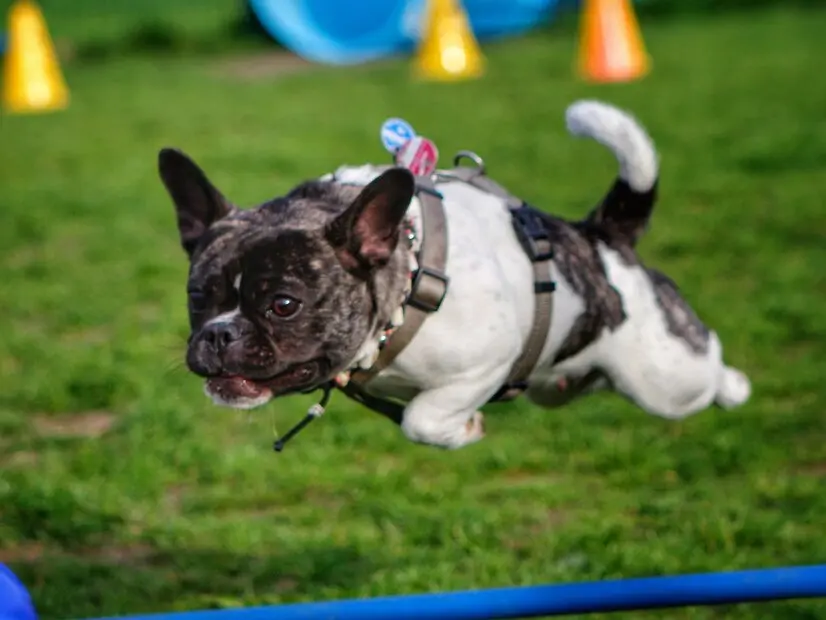
Meet the French Bulldog, a small and lovable companion with an unexpected flair for agility! Despite their pint-sized stature and adorable looks, these furry friends are surprisingly nimble and agile.
Picture your Frenchie gracefully navigating agility courses, showcasing their agility with charm and enthusiasm. Their low center of gravity and well-built muscles contribute to their quick and precise movements, making them a delightful surprise on the agility field.
It’s as if they’re saying, “Watch me go!” So, while French Bulldogs may not be the first breed that comes to mind when you think of agility, they prove that big things (or in this case, agile things) come in small, furry packages.
How Agile Is The French Bulldog?
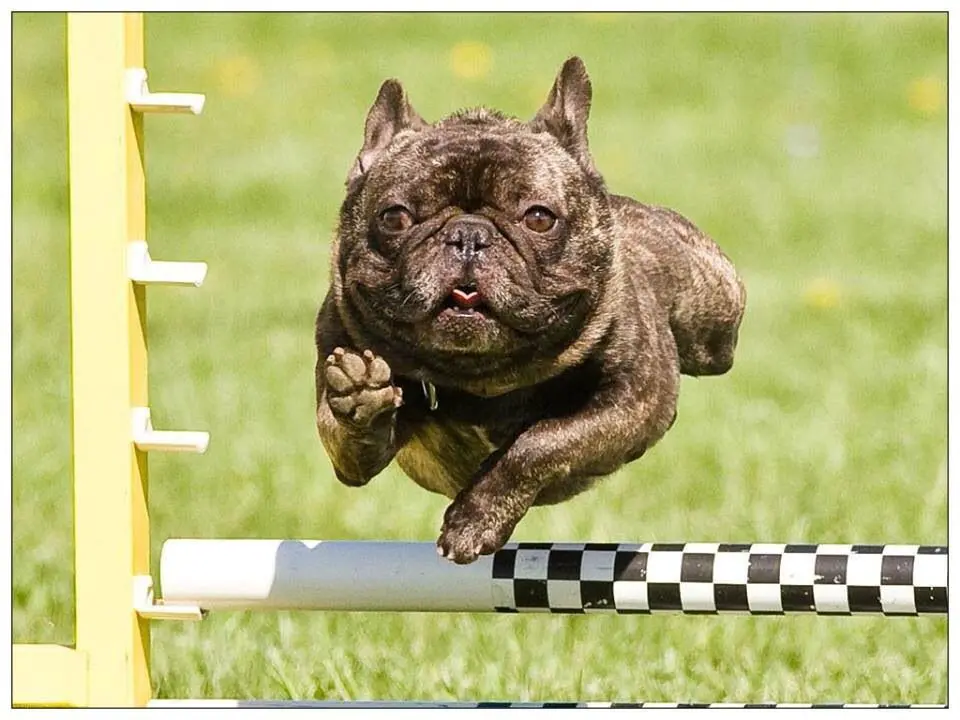
The agility of the French Bulldog is a delightful revelation, showcasing unexpected grace and dexterity in a compact package. Despite their small size, French Bulldogs exhibit a surprising level of agility, demonstrating quick and nimble movements that captivate onlookers.
Their low center of gravity and well-defined muscles contribute to their ability to navigate agility courses with remarkable finesse. This breed’s agility is not merely a physical feat; it’s a testament to their adaptability and spirited nature.
Whether they’re effortlessly maneuvering through obstacles or showcasing their agility in playful antics, French Bulldogs prove that agility is not limited by size but rather defined by an innate ability to move with elegance and agility.
Does the French Bulldog’s Agility Last?
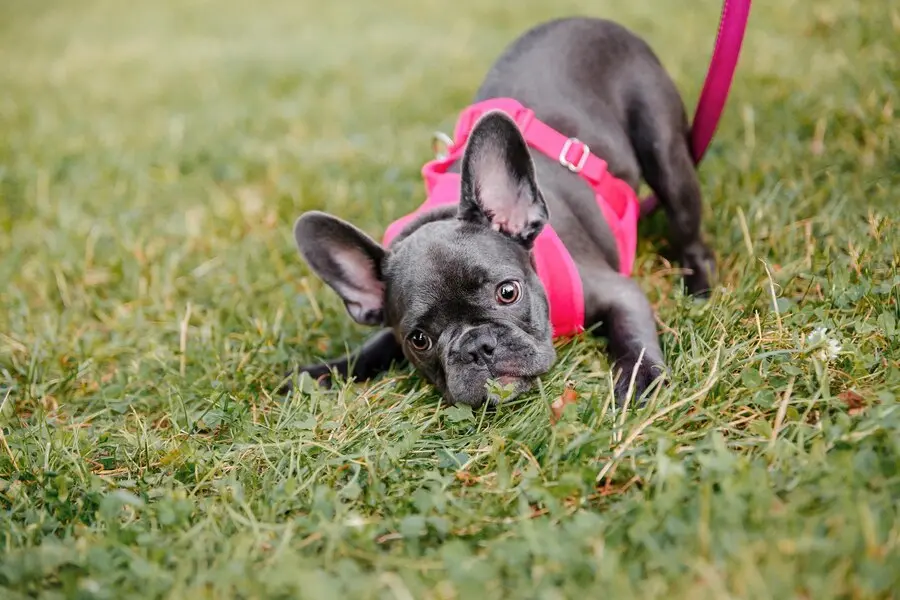
The enduring agility of the French Bulldog is a testament to the breed’s remarkable adaptability and resilience. Despite their initially surprising agility, the question arises: does this prowess last? The answer is a resounding yes.
French Bulldogs, with proper and consistent agility training, maintain their nimbleness and ability to navigate obstacles throughout their lives. This longevity is attributed to their innate intelligence and the engaging nature of agility exercises.
The agility of French Bulldogs transcends mere physical prowess; it becomes a lasting aspect of their character, enriching their lives and fostering a continued sense of accomplishment and vitality.
So, whether they’re conquering agility courses as sprightly youngsters or gracefully navigating them in their golden years, the French Bulldog’s agility is a lasting attribute that adds both vibrancy and joy to their lives.
The Benefits Of Agility Training For French Bulldogs

Agility training isn’t just a physical workout; it’s a holistic approach to fostering a healthier, more engaged French Bulldog. Here are five key benefits that go beyond the agility course:
1. Harnesses Your French Bulldog’s Physical Capabilities
Agility training serves as a comprehensive exercise routine, tapping into your Frenchie’s physical abilities. From weaving through poles to navigating tunnels, each agility element engages different muscle groups, promoting overall strength and agility.
2. Offers Mental Stimulation
Beyond the physical aspects, agility training is a mental workout for your French Bulldog. Negotiating obstacle courses demands problem-solving skills and quick decision-making, providing valuable mental stimulation that keeps your Frenchie sharp and focused.
3. Increases Your French Bulldog’s Confidence
Successfully conquering agility obstacles boosts your French Bulldog’s confidence. The sense of accomplishment derived from mastering challenges translates to a more self-assured and resilient canine companion.
4. Improves Control and Obedience
Agility training is more than just a flashy display of jumps and weaves. It enhances your Frenchie’s control and obedience as they learn to respond to your commands promptly. This newfound discipline extends beyond the agility course, making daily interactions more manageable.
5. Strengthens the Human-Canine Bond
Engaging in agility training fosters a stronger bond between you and your French Bulldog. The collaborative nature of agility requires teamwork, reinforcing the connection and understanding between pet and owner. It’s not just about physical exercise; it’s about the shared experience and mutual trust developed through the training process.
How Can I Tell If My French Bulldog Will Be a Good Agility?
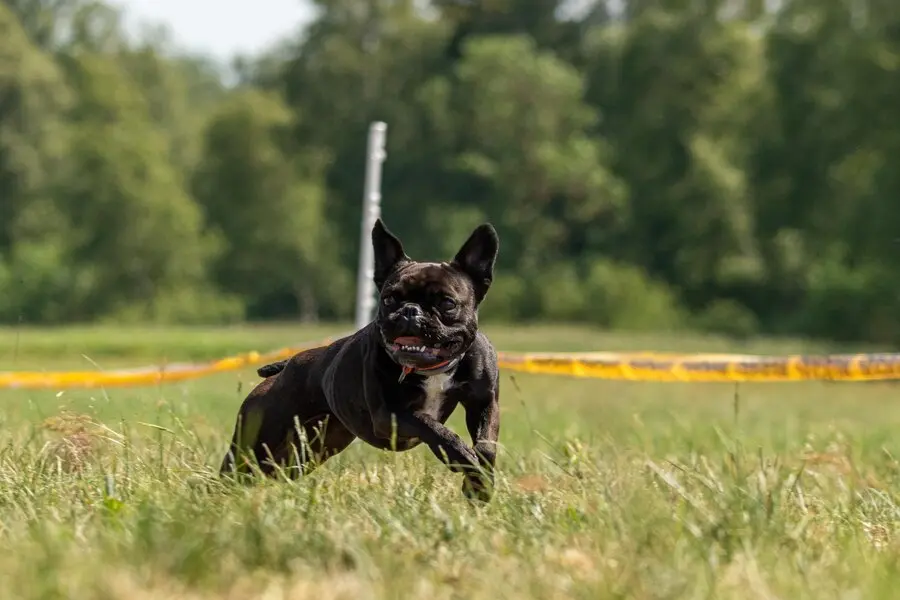
When delving into the world of agility training with French Bulldogs, discerning the potential for success is key. Here are three critical factors that determine whether your Frenchie is poised to excel in agility:
Healthy Weight and Overall Fitness
A good agility French Bulldog begins with a foundation of optimal health. Ensure your Frenchie maintains a healthy weight, as excess pounds can hinder agility performance. Regular exercise and a well-balanced diet contribute to overall fitness, promoting the stamina and endurance needed for agility courses.
Strong Nerves and a Good Temperament
Agility demands more than physical prowess; it necessitates mental resilience. A successful agility Frenchie exhibits strong nerves, remaining calm and composed in the face of challenging obstacles. A good temperament is equally crucial; a well-balanced and adaptable Frenchie is more likely to thrive in the dynamic environment of agility training.
Handler Focus and Work Ethic
The partnership between the handler and Frenchie is pivotal in agility. A good agility French Bulldog maintains focus on the handler, responding promptly to commands. Additionally, a strong work ethic is key; a Frenchie willing to put in the effort and collaborate with the handler enhances the overall agility training experience.
Is Agility Training Good for My French Bulldog?
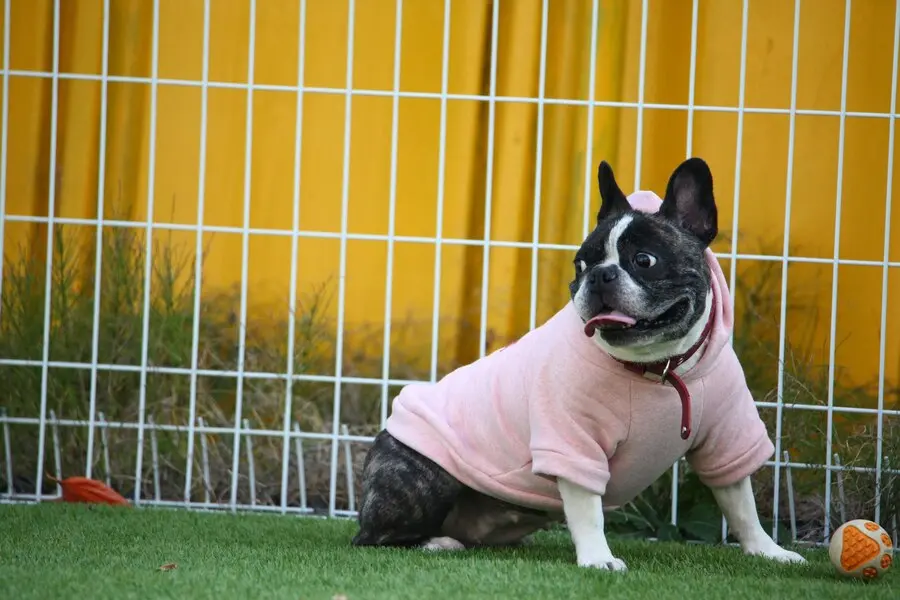
Deciding whether agility training is a suitable venture for your French Bulldog involves a nuanced understanding of your furry companion’s distinct personality. Let’s explore how agility training can prove to be a valuable endeavor for different types of French Bulldogs:
Nervous/Anxious French Bulldogs
For the nervous or anxious French Bulldog, agility training serves as a therapeutic avenue. The controlled and predictable environment of an agility course provides a structured space for these dogs to confront their anxieties.
As they navigate through tunnels and conquer jumps, the incremental challenges instill a sense of accomplishment, gradually transforming nervousness into focused determination. Agility becomes a tool for building confidence, fostering resilience, and ultimately, enriching the emotional well-being of these sensitive canines.
High-Energy Working French Bulldogs
Agility training is a tailor-made solution for the high-energy working French Bulldog. Channeling their exuberance into purposeful and controlled activities, the agility course becomes an arena where their athleticism and vigor shine.
The dynamic nature of agility engages both body and mind, ensuring that the boundless energy of these industrious dogs finds a constructive outlet. This not only exhausts physical energy but also stimulates their intellect, creating a well-rounded and contented high-energy Frenchie.
French Bulldogs That Lack Focus
For French Bulldogs struggling with focus, agility training acts as a transformative tool. The array of obstacles demands their attention and challenges their mental acuity. Negotiating the course hones their ability to follow commands promptly, fostering discipline and a heightened sense of focus.
The structured nature of agility exercises becomes a training ground for improving attention spans, transforming an initially unfocused Frenchie into a more attentive and responsive participant.
How to know if agility is not good for your French Bulldog
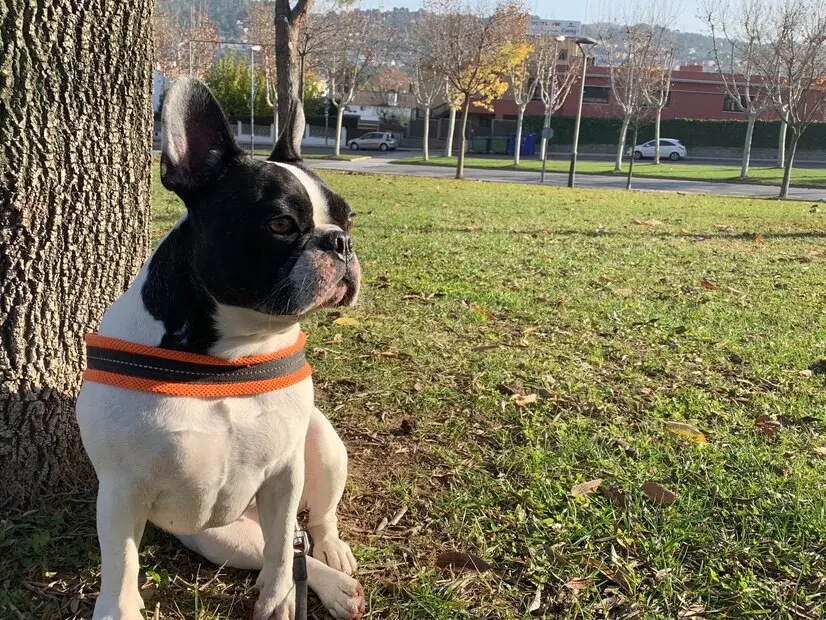
Recognizing whether agility is a suitable pursuit for your French Bulldog involves attentiveness to their well-being and individual characteristics. If your Frenchie exhibits signs of discomfort, such as limping, fatigue, or persistent reluctance to engage in agility exercises, it may be an indication that this activity is not suitable for them.
Consultation with a veterinarian is crucial to assess their physical condition and rule out any underlying health concerns. Additionally, if your French Bulldog is still in the growth phase, it’s advisable to avoid full jump heights to protect developing joints.
A watchful eye on their response to training, coupled with professional advice, ensures that agility remains a positive and enjoyable experience for your cherished Frenchie.
How to Make Agility Fun for Your French Bulldog
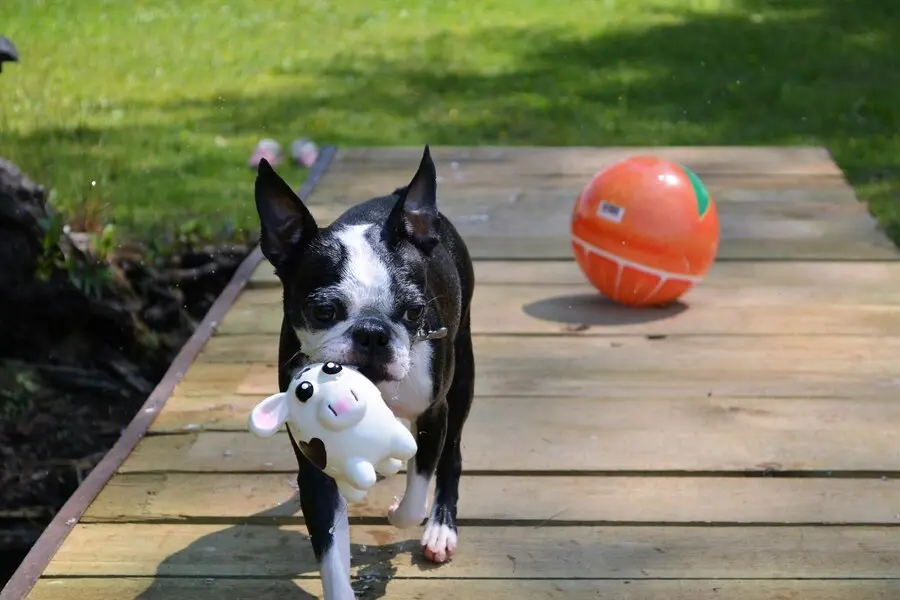
Ensuring that agility training remains an enjoyable and positive experience for your French Bulldog involves a thoughtful approach. Here are essential guidelines to make agility training a delightful endeavor for both you and your furry companion:
- Do Not Let Your French Bulldog Jump at Full Jump Height Until He Is Finished Growing: Commence agility training with caution, particularly concerning jumping exercises. Avoid subjecting your French Bulldog to full jump heights until they have completed their growth phase. Premature or excessive jumping can strain developing joints and impact their skeletal health. Instead, gradually introduce jumps at appropriate heights, allowing their physique to mature at a pace that safeguards their well-being.
- Do Not Use Unsafe Equipment: Choosing agility equipment designed for dogs is paramount. Avoid makeshift or unsafe equipment that may compromise your Frenchie’s safety. Investing in professionally designed and vetted apparatus ensures a secure training environment, minimizing the risk of injuries during agility sessions.
- Do Not Train on Hard and Slippery Surfaces: The surface on which you conduct agility training plays a pivotal role in your Frenchie’s safety. Refrain from training on hard or slippery surfaces, as these can lead to joint strain and accidents. Opt for soft, non-slip materials to provide better traction and cushioning, enhancing both safety and comfort for your agile companion.
- Do Not Train If Your French Bulldog Is Tired, Sore, or Limping: Attentiveness to your Frenchie’s physical condition is crucial. If they display signs of fatigue, soreness, or limping, it’s a clear indication to postpone agility training. Pushing a tired or uncomfortable dog may lead to injuries and diminish the positive association with agility. Prioritize their well-being, allowing for adequate rest and recovery before resuming training.
- Always Do a Short Warm-Up and Cool-Down Routine: Incorporate a brief warm-up and cool-down routine into each agility session. This preparatory phase enhances flexibility, reduces the risk of muscle strains, and mentally readies your Frenchie for upcoming challenges. Similarly, a cool-down routine aids in preventing stiffness and promotes a smooth recovery post-training.
- Take Rest Days at Least Once or Twice a Week: Just like humans, dogs benefit from rest and recovery. Designate rest days at least once or twice a week to allow your French Bulldog’s body to recuperate. This downtime is crucial for preventing overexertion, promoting physical well-being, and ensuring a sustained enthusiasm for agility training.
- Do Not Train Multiple Dogs at Once: Maintaining a focused training environment is vital for effective agility sessions. Avoid training multiple dogs simultaneously, as this may lead to distractions and hinder individualized attention. Opting for one-on-one sessions enhances the learning experience for your French Bulldog and fosters a more concentrated and fruitful training environment.
- Train Your French Bulldog with Lots of Rewards: Positive reinforcement is the cornerstone of successful agility training. Utilize a variety of rewards, including treats, praise, and toys, to motivate and reinforce desired behaviors. This not only makes training enjoyable for your Frenchie but also strengthens the bond between you and your agile companion.
Frequently Asked Questions
Can a French Bulldog Run 5k?
While French Bulldogs enjoy moderate exercise, a 5k run may strain their respiratory system and joints. Consult with your veterinarian before engaging in extensive running activities.
Are French Bulldogs Difficult?
French Bulldogs are generally easygoing but may present training challenges due to their occasional stubbornness. Patient and consistent training with positive reinforcement can foster good behavior.
Why Are French Bulldogs So Hard to Train?
Their intelligence combined with a touch of stubbornness can pose training challenges. Using positive reinforcement, short sessions, and understanding their motivations can enhance the training experience.
Is a French Bulldog a Beginner Dog?
French Bulldogs are recommended for first-time owners due to their affectionate nature. However, understanding their specific needs, including potential health considerations and training nuances, is crucial for a positive experience.
How Much Exercise Does a French Bulldog Need?
Moderate exercise, such as short walks and interactive play, is suitable. Be mindful of their breathing, especially in hot weather, due to their brachycephalic nature.
Do French Bulldogs Shed a Lot?
With a short and smooth coat, French Bulldogs experience minimal shedding. Regular grooming helps maintain their coat and reduces loose hair.
Can French Bulldogs Swim?
While some may enjoy swimming, not all are natural swimmers. Introduce them gradually, use a life vest, and supervise water activities for a positive experience.
Wrapping up
In conclusion, French Bulldogs, often underestimated in agility, surprise with their graceful prowess. Despite their compact size, they navigate courses with enthusiasm and adaptability.
By recognizing their unique strengths and employing positive training, these charming companions showcase agility skills that defy expectations. The world of agility becomes a stage for their spirited performances, proving that, with patience and encouragement, French Bulldogs can excel in this dynamic canine sport.
In essence, these small packages of charm unveil a big-hearted and agile side, turning agility into an unexpectedly delightful journey for both owners and their furry companions.




